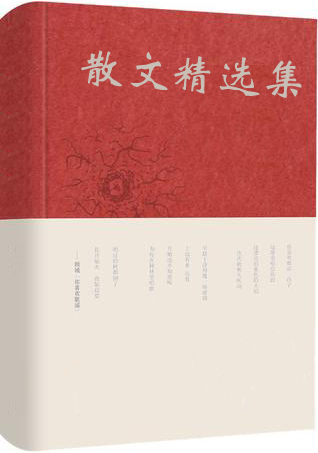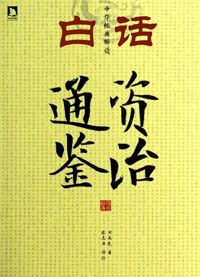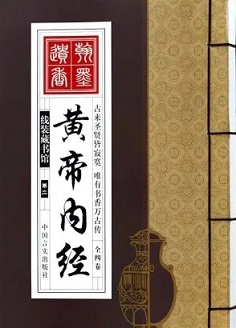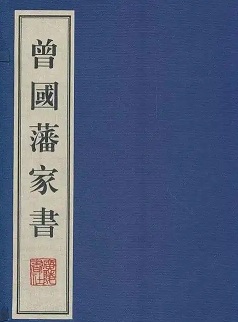The private life of M. Myriel was filled with the same thoughts as his public life. The voluntary poverty in which the Bishop of D—— lived, would have been a solemn and charming sight for any one who could have viewed it close at hand.
Like all old men, and like the majority of thinkers, he slept little. This brief slumber was profound. In the morning he meditated for an hour, then he said his mass, either at the cathedral or in his own house. His mass said, he broke his fast on rye bread dipped in the milk of his own cows. Then he set to work.
A Bishop is a very busy man: he must every day receive the secretary of the bishopric, who is generally a canon, and nearly every day his vicars-general. He has congregations to reprove, privileges to grant, a whole ecclesiastical library to examine,-- prayer-books, diocesan catechisms, books of hours, etc.,--charges to write, sermons to authorize, cures and mayors to reconcile, a clerical correspondence, an administrative correspondence; on one side the State, on the other the Holy See; and a thousand matters of business.
What time was left to him, after these thousand details of business, and his offices and his breviary, he bestowed first on the necessitous, the sick, and the afflicted; the time which was left to him from the afflicted, the sick, and the necessitous, he devoted to work. Sometimes he dug in his garden; again, he read or wrote. He had but one word for both these kinds of toil; he called them gardening. "The mind is a garden," said he.
Towards mid-day, when the weather was fine, he went forth and took a stroll in the country or in town, often entering lowly dwellings. He was seen walking alone, buried in his own thoughts, his eyes cast down, supporting himself on his long cane, clad in his wadded purple garment of silk, which was very warm, wearing purple stockings inside his coarse shoes, and surmounted by a flat hat which allowed three golden tassels of large bullion to droop from its three points.
It was a perfect festival wherever he appeared. One would have said that his presence had something warming and luminous about it. The children and the old people came out to the doorsteps for the Bishop as for the sun. He bestowed his blessing, and they blessed him. They pointed out his house to any one who was in need of anything.
Here and there he halted, accosted the little boys and girls, and smiled upon the mothers. He visited the poor so long as he had any money; when he no longer had any, he visited the rich.
As he made his cassocks last a long while, and did not wish to have it noticed, he never went out in the town without his wadded purple cloak. This inconvenienced him somewhat in summer.
On his return, he dined. The dinner resembled his breakfast.
At half-past eight in the evening he supped with his sister, Madame Magloire standing behind them and serving them at table. Nothing could be more frugal than this repast. If, however, the Bishop had one of his cures to supper, Madame Magloire took advantage of the opportunity to serve Monseigneur with some excellent fish from the lake, or with some fine game from the mountains. Every cure furnished the pretext for a good meal: the Bishop did not interfere. With that exception, his ordinary diet consisted only of vegetables boiled in water, and oil soup. Thus it was said in the town, when the Bishop does not indulge in the cheer of a cure, he indulges in the cheer of a trappist.
After supper he conversed for half an hour with Mademoiselle Baptistine and Madame Magloire; then he retired to his own room and set to writing, sometimes on loose sheets, and again on the margin of some folio. He was a man of letters and rather learned. He left behind him five or six very curious manuscripts; among others, a dissertation on this verse in Genesis, In the beginning, the spirit of God floated upon the waters. With this verse he compares three texts: the Arabic verse which says, The winds of God blew; Flavius Josephus who says, A wind from above was precipitated upon the earth; and finally, the Chaldaic paraphrase of Onkelos, which renders it, A wind coming from God blew upon the face of the waters. In another dissertation, he examines the theological works of Hugo, Bishop of Ptolemais, great-grand-uncle to the writer of this book, and establishes the fact, that to this bishop must be attributed the divers little works published during the last century, under the pseudonym of Barleycourt.
Sometimes, in the midst of his reading, no matter what the book might be which he had in his hand, he would suddenly fall into a profound meditation, whence he only emerged to write a few lines on the pages of the volume itself. These lines have often no connection whatever with the book which contains them. We now have under our eyes a note written by him on the margin of a quarto entitled Correspondence of Lord Germain with Generals Clinton, Cornwallis, and the Admirals on the American station. Versailles, Poincot, book-seller; and Paris, Pissot, bookseller, Quai des Augustins.
Here is the note:--
"Oh, you who are!
"Ecclesiastes calls you the All-powerful; the Maccabees call you the Creator; the Epistle to the Ephesians calls you liberty; Baruch calls you Immensity; the Psalms call you Wisdom and Truth; John calls you Light; the Books of Kings call you Lord; Exodus calls you Providence; Leviticus, Sanctity; Esdras, Justice; the creation calls you God; man calls you Father; but Solomon calls you Compassion, and that is the most beautiful of all your names."
Toward nine o'clock in the evening the two women retired and betook themselves to their chambers on the first floor, leaving him alone until morning on the ground floor.
It is necessary that we should, in this place, give an exact idea of the dwelling of the Bishop of D——
米里哀先生的家庭生活,正如他的社会生活那样,是受同样的思想支配的。对那些有机会就近观察的人,迪涅主教所过的那种自甘淡泊的生活,确是严肃而动人。
和所有老年人及大部分思想家一样,他睡得少,但他的短暂的睡眠却是安稳的。早晨,他静修一个钟头,再念他的弥撒经,有时在天主堂里,有时在自己的经堂里。弥撒经念过以后,作为早餐,他吃一块黑麦面包,蘸着自家的牛的乳汁。随后,他开始工作。
主教总是相当忙的,他得每天接见主教区的秘书棗通常是一个司祭神甫,并且几乎每天都得接见他的那些助理主教。他有许多会议要主持,整个宗教图书室要检查,还要诵弥撒经、教理问答、日课经等等;还有许多训示要写,许多讲稿要批示,还要和解教士与地方官之间的争执,还要办教务方面的信件、行政方面的信件,一方是政府,一方是宗教,总有作不完的事。
那些无穷尽的事务和他的日课以及祈祷所余下的时间,他首先用在贫病和痛苦的人身上;在痛苦和贫病的人之后留下的时间,他用在劳动上。他有时在园里铲土,有时阅读和写作。他对那两种工作只有一种叫法,他管这叫“种地”,他说:
“精神是一种园地。”
日中,他用午餐。午餐正和他的早餐一样。
将近两点时,如果天气好,他去乡间或城里散步,时常走进那些破烂的人家。人们看见他独自走着,低着眼睛,扶着一根长拐杖,穿着他那件相当温暖的紫棉袍,脚上穿着紫袜和粗笨的鞋子,头上戴着他的平顶帽,三束金流苏从帽顶的三只角里坠下来。
他经过的地方就象过节似的。我们可以说他一路走过,就一路在散布温暖和光明。孩子和老人都为主教而走到大门口来,有如迎接阳光。他祝福大家,大家也为他祝福。人们总把他的住所指给任何有所需求的人们看。
他随处停下来,和小男孩小女孩们谈话,也向着母亲们微笑。他只要有钱,总去找穷人;钱完了,便去找有钱人。
由于他的道袍穿得太久了,却又不愿被别人察觉,因此他进城就不得不套上那件紫棉袍。在夏季,那是会有点使他不好受的。
晚上八点半,他和他的妹子进晚餐,马格洛大娘立在他们的后面照应。再没有比那种晚餐更简单的了。但是如果主教留他的一位神甫晚餐,马格洛大娘就借此机会为主教做些鲜美的湖鱼或名贵的野味。所有的神甫都成了预备盛餐的借口,主教也让人摆布。此外,他日常的伙食总不外水煮蔬菜和素油汤。城里的人都说:“主教不吃神甫菜的时候,就吃苦修会的修士菜。”
晚餐过后,他和巴狄斯丁姑娘与马格洛大娘闲谈半小时,再回到自己的房间从事写作,有时写在单页纸上,有时写在对开本书本的空白边上。他是个文人,知识颇为渊博,他留下了五种或六种相当奇特的手稿,其中一种是关于《创世记》中“上帝的灵运行在水面上”①那一节的研究。他拿三种经文来作比较:阿拉伯译文作“上帝的风吹着”;弗拉菲于斯·约瑟夫②作“上界的风骤临下土”;最后翁格洛斯的迦勒底③文的注释性翻译则作“来自上帝的一阵风吹在水面上”。在另外一篇论文里,他研究了雨果关于神学的著作棗雨果是普托利迈伊斯的主教,本书作者的叔曾祖;他还证明在前世纪以笔名巴勒古尔发表的各种小册子都应是那位主教的。
①这一句话原文见《创世记》第一章第二节。
②弗拉菲于斯·约瑟夫(FlaviusJosephe),一世纪末的犹太历史家。
③迦勒底(Chaldée),巴比伦一带地方的古称。
有时,他正在阅读,不问在他手里的是什么书,他会忽然堕入深远的思考,想完以后,立即在原书中写上几行。那样的几行字时常是和他手中的书毫无关系的。目下我们有他在一本四开本书的边上所写的注,书名是《贵人日耳曼和克林东、柯恩华立斯两将军以及美洲海域海军上将们的往来信札》,凡尔赛盘索书店及巴黎奥古斯丁河沿毕索书店印行。
注是这样的:
“呵!存在着的你!
“《传道书》称你为全能,马加比人称你为创造主,《以弗所书》称你为自由,巴录称你为广大,《诗篇》称你为智慧与真理,约翰称你为光明,《列王纪》称你为天主,《出埃及记》呼汝为主宰,《利未记》呼汝为神圣,以斯拉呼汝为公正,《创世记》称你为上帝,人称你为天父,但是所罗门称你为慈悲,这才是你名称中最美的一个。”
近九点钟时,两位妇女退到楼上自己的房间去,让他独自留在楼下,直到天明。







